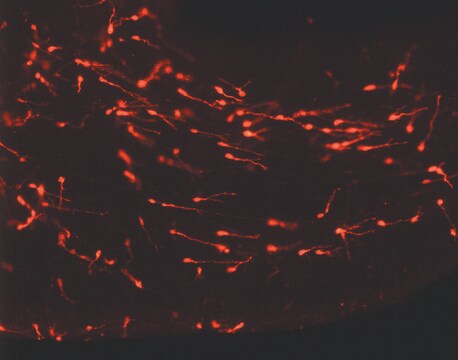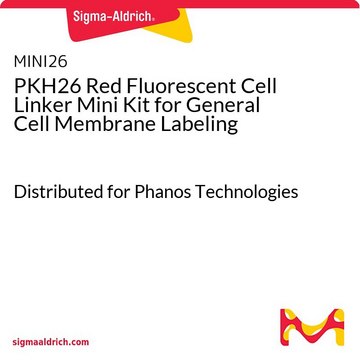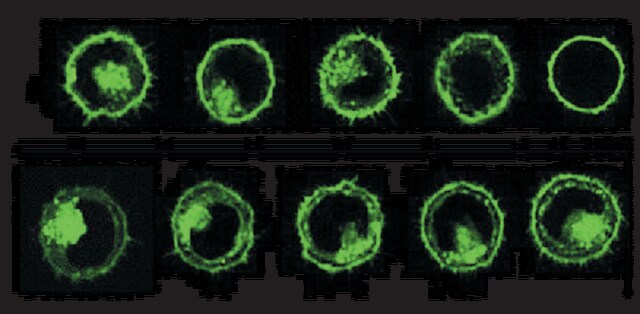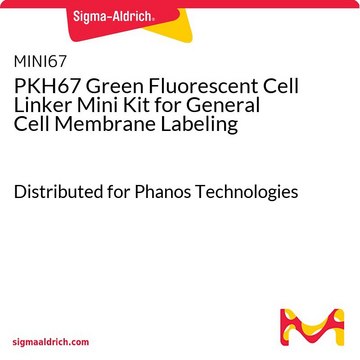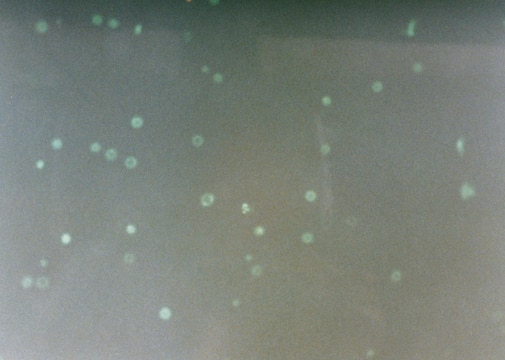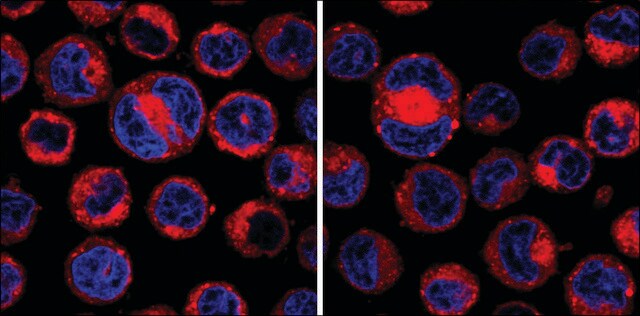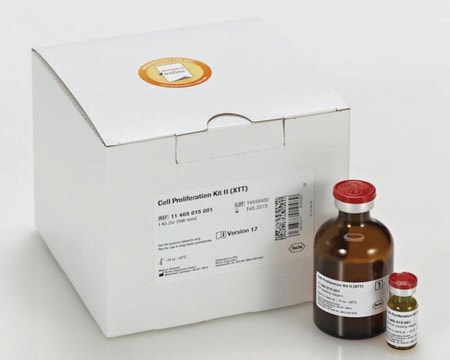MIDI26
PKH26 Red Fluorescent Cell Linker Midi Kit for General Cell Membrane Labeling
Distributed for Phanos Technologies
Synonym(s):
pkh membrane dye, red pkh
About This Item
Recommended Products
packaging
pkg of 1 kit
manufacturer/tradename
Distributed for Phanos Technologies
storage condition
protect from light
technique(s)
flow cytometry: suitable
fluorescence
λex 551 nm; λem 567 nm (PKH26 dye)
application(s)
cell analysis
detection
detection method
fluorometric
shipped in
ambient
storage temp.
room temp
General description
Application
Linkage
Legal Information
Kit Components Only
- Diluent C 60 mL
- PKH26 Cell Linker in Ethanol .2 mL
Signal Word
Danger
Hazard Statements
Precautionary Statements
Hazard Classifications
Eye Irrit. 2 - Flam. Liq. 2
Storage Class Code
3 - Flammable liquids
Flash Point(F)
57.2 °F - closed cup
Flash Point(C)
14 °C - closed cup
Certificates of Analysis (COA)
Search for Certificates of Analysis (COA) by entering the products Lot/Batch Number. Lot and Batch Numbers can be found on a product’s label following the words ‘Lot’ or ‘Batch’.
Already Own This Product?
Find documentation for the products that you have recently purchased in the Document Library.
Customers Also Viewed
Articles
PKH and CellVue® Fluorescent Cell Linker Kits provide fluorescent labeling of live cells over an extended period of time, with no apparent toxic effects.
Our team of scientists has experience in all areas of research including Life Science, Material Science, Chemical Synthesis, Chromatography, Analytical and many others.
Contact Technical Service